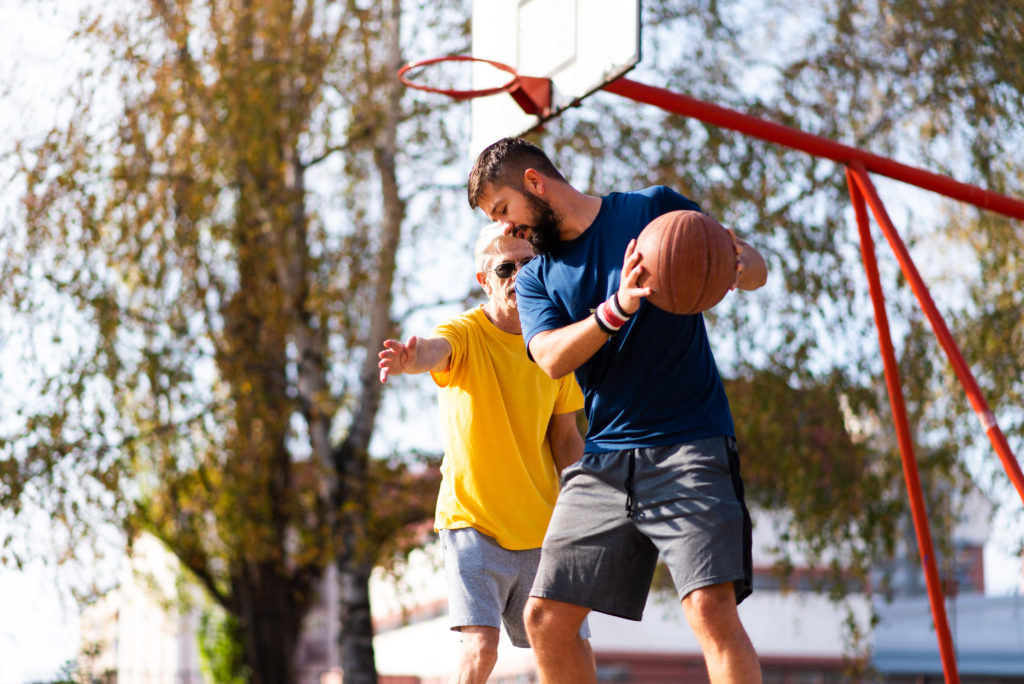Quick Hits
Daily brief research updates from the cognitive sciences

Exercise is good for you – we all know that. The research is also overwhelming showing incredibly wide-ranging benefits, heart health, lower inflammation, better metabolism, lower risk of degenerative diseases, and the list goes on and on. So, all in quite simple – get exercising.
I have also reported on the multiple benefits for the brain – from exercise in childhood being able to be seen in the brain 40 year later, to general improved cognition, and brain plasticity, brain growth that is.
But most of these studies focus on long-term or bouts of exercise lasting weeks or months. What about just one session of exercise? Is it too little to have any tangible benefits apart from the short-term glow of having done something positive and having a short positive hormone boost?
Well, now a study from the Oregon Health & Science University published in July by Christina Chatzi et al. have shown that just a single bout of exercise can also have positive benefits and notably on brain plasticity, growth, itself.
This experiment was done in mice it must be noted. However, many exercise studies have translated well from mice to human beings so it is very encouraging.
What they did is put otherwise sedentary mice though a single exercise routine – this would be the equivalent of 4’000 steps for human beings – the researchers compared this to a game of pick up basketball.
I am sure you will be keen to know what they found.
Yes, very good news.
They noticed an increase in synapses, the connections between brain cells, in a region called the hippocampus. The hippocampus is a region that is known to be very important for memory and learning.
This happens through activating a gene called Mtss1L which seems to have been largely ignored in previous studies in the brain and exercise. This increases production of proteins that are important for shaping cell membranes and therefore helping them to growth and connect.
So, this shows that a single bout of exercise can boost synaptic growth in your hippocampus – priming your brain for learning and yes, that is growing your brain in, albeit, a small way – but also not to be scoffed at either.
So, of you go – get your sports shoes on – or just have a game of basketball, or a kick around on your way home. Your brain will thank you for it.

Andy Habermacher
Andy is author of leading brains Review, Neuroleadership, and multiple other books. He has been intensively involved in writing and research into neuroleadership and is considered one of Europe’s leading experts. He is also a well-known public speaker, speaking on the brain and human behaviour.
Andy is also a masters athlete (middle distance running) and competes regularly at international competitions (and holds a few national records in his age category).
References
Christina Chatzi, Gina Zhang, Wiiliam D Hendricks, Yang Chen, Eric Schnell, Richard H Goodman, Gary L Westbrook.
Exercise-induced enhancement of synaptic function triggered by the inverse BAR protein, Mtss1L.
eLife, 2019; 8
DOI: 10.7554/eLife.45920
More Quick Hits
How Sleep Helps Your Brain Manage Fear
Quick HitsDaily brief research updates from the cognitive sciences leep on i” is common advice for many reasons. Often to consolidate thoughts and help boost creativity. This is a well-known effect. We also know that sleep is the time that helps to...
Video games can boost children’s intelligence
Quick HitsDaily brief research updates from the cognitive sciences ell, this is not the answer many of us would expect, and it goes against other logic of spending more time doing other things such as reading or socialising with friends...
Just how many people get COVID brain?
Quick HitsDaily brief research updates from the cognitive sciences here are many questions still open about COVID and the brain. There is no doubt that long COVID exists, and this can have dramatic impacts on people’s lives. But just how...
Brain networks and losing weight – successfully or not
Quick HitsDaily brief research updates from the cognitive sciences s weight loss all in the mind? Well, with the danger of oversimplifying a complex topic, this latest research shows it is, and shows precisely how and with what networks. So,...
Reversing aging – with poo!
Quick HitsDaily brief research updates from the cognitive sciences ho wouldn't want to age better - well the results of an unsual study are in and the results are promising and may make many of you who are aging prick up your ears. The...
Brisk walking slows biological aging
Quick HitsDaily brief research updates from the cognitive sciences f you want to age better, then walk quicker, or those who walk quicker, age slower. That is the result of a recent study of 400,000 UK adults mapped to genetic markers of age...






